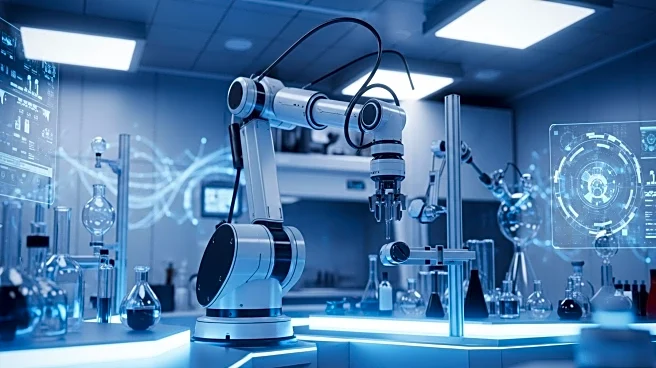What's Happening?
Ahead of the American Society of Human Genetics (ASHG) meeting, lab automation companies like SPT Labtech and Agilent have announced new products and partnerships. SPT Labtech's firefly+ platform now supports automated target enrichment protocols for Agilent's SureSelect Max DNA Library Prep kits, enabling genomic workflows in clinical research and precision medicine. Additionally, Opentrons and BD have partnered to integrate robotic liquid-handling capabilities into BD's single-cell multiomics instruments, automating critical experimental steps in disease research and drug development.
Why It's Important?
The launch of new lab automation products is significant for the U.S. biotechnology and research sectors, as it enhances the efficiency and accuracy of genomic workflows. By automating critical experimental steps, these technologies support advancements in disease research and drug development, potentially accelerating scientific discoveries and improving healthcare outcomes. The partnerships between lab automation companies and technology developers reflect a growing trend towards collaboration and innovation in the biotech industry, promising improved research methodologies and increased productivity.
What's Next?
The adoption of automated lab technologies is expected to drive further advancements in genomic research and precision medicine. Researchers and biotech companies may explore new applications and collaborations to leverage these technologies, potentially leading to breakthroughs in disease understanding and therapeutic development. As the industry continues to innovate, further improvements in automation and integration capabilities could expand the scope of research, fostering collaboration across scientific disciplines.
Beyond the Headlines
The ethical considerations of lab automation, such as data privacy and security, may become more prominent as these technologies are adopted more widely. Legal frameworks and policies will need to evolve to address these issues, ensuring responsible use of automated systems. Additionally, cultural shifts in how laboratory processes are perceived and utilized in research could emerge, influencing public attitudes towards automation and its impact on scientific discovery.









